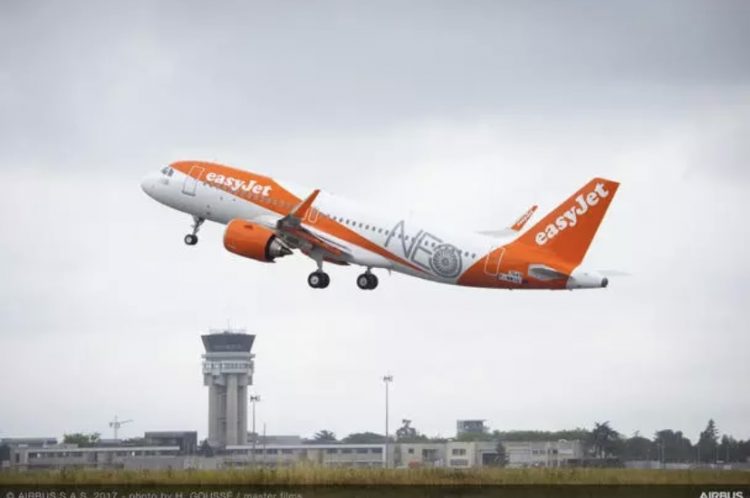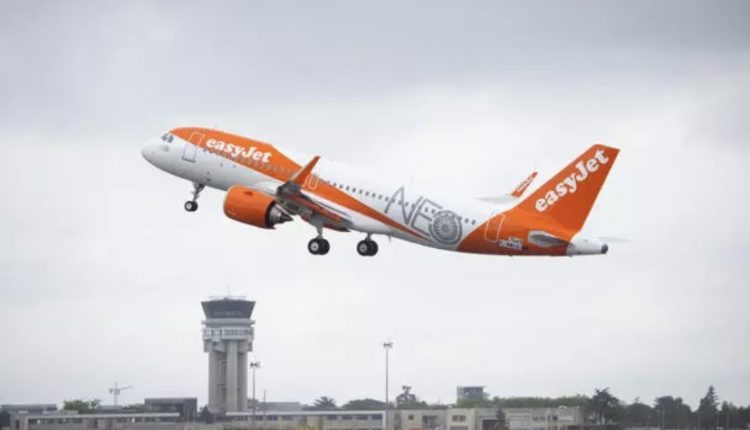Low-cost airline easyJet, which operates more than 25 routes out of Liverpool John Lennon Airport, steps up its efforts to offer hydrogen-fuelled flights by 2035. Tony McDonough reports

Passengers could be travelling on hydrogen-fuelled easyJet aircraft by 2035 as the budget airline steps up its decarbonisation strategy.
EasyJet, which operates more than 25 routes out of Liverpool John Lennon Airport, has already been working with planemaker Airbus, on the development of hydrogen-powered aircraft. Airbus operates a huge wing-making plant in Deeside.
In the last few days the carrier says Air Products, the world’s largest hydrogen supplier, and Gatwick Airport have also joined its development partnership. It is looking to expand hydrogen capability and infrastructure in the UK.
In the drive towards net zero, aviation is one of the more difficult sectors to decarbonise. Aircraft account for just 2.5% of human emissions although that percentage is likely to grow with increased demand for air travel and as other sectors cut their emissions.
A number of airlines, including easyJet, have looked at the possibility of electric planes. However, the size and weight of a battery that could keep a commercial airliner in the air for long enough remains a significant obstacle.
Hydrogen is seen as a better long-term solution but one that is not without controversies of its own. Key to hydrogen’s low emission credentials is how it is produced.
In the UK the Government is investing heavily in so-called ‘blue hydrogen’. This is hydrogen produced by burning natural gas. But instead of being released into the atmosphere, the CO2 is captured and stored.
HyNet is a multi-billion pound project in the North West. It will see a £3bn hydrogen production hub built at the Stanlow oil refinery close to the Mersey. The captured CO2 emissions will be stored in depleted gas fields under Liverpool Bay.
Opponents of blue hydrogen claim the technology won’t work to the level required and insist it is just a way of prolonging the use of fossil fuels. We will find out the answer when HyNet switches on its kit in 2027.
Best way of producing hydrogen that is emissions-free is by running electricity from a renewable source such as wind or solar through a device called an electrolyser. This separates out the hydrogen atoms in water. However, scale-up is still some years away.
Under Airbus’ Hydrogen Hubs at Airports framework, the scope of work covers liquid hydrogen supply and storage at the airport, refuelling and ground handling of hydrogen aircraft, as well as the exploration of other, shorter-term opportunities for using hydrogen at London Gatwick.
Because early hydrogen-powered aircraft will initially focus on short to medium haul routes, Gatwick’s position along with easyJet’s operational insight as a short haul carrier, makes this the ideal testbed for R&D into critical support infrastructure.


This collaboration between Airbus, London Gatwick, easyJet and Air Products will serve as a powerful statement of commitment to making hydrogen-powered flight a reality by 2035.
New research from Chalmers University of Technology in Sweden has shown hydrogen-powered aircraft could be used for travel within a 750-mile radius by 2045. It says shorter journeys could happen as soon as 2028.
READ MORE: EasyJet launches two new Liverpool routes
READ MORE: Stanlow hydrogen power plant to switch on in 2027
David Morgan, chief operating officer, easyJet, said: “Hydrogen is going to play an important role in decarbonising aviation so we need to lay the groundwork now to make that happen.
“The Gatwick hub is another positive signal and demonstrates the industry’s intent to both adapt and work together to reach the common goal of decarbonising aviation.
“Combined with support from regulators and policymakers, I’ve no doubt that projects like this will act as the building blocks to prepare UK airports for a hydrogen transition – something that will be critical to achieving our net zero ambitions.”

